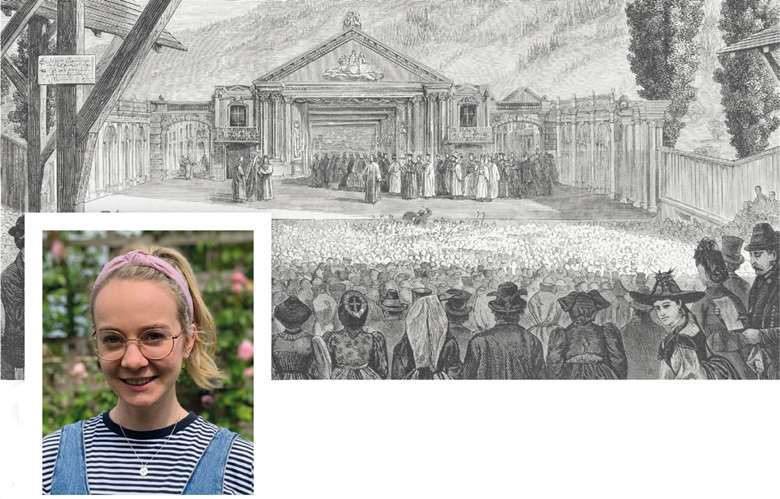Opinion with Harriet Clifford
Harriet Clifford
Saturday, February 1, 2020
The Oberammergau Phenomenon

Arriving in Oberammergau, a small, quiet Bavarian town of 5,000 inhabitants in southern Germany, it seems impossible that every ten years, 4,700 international visitors come each afternoon to watch the world-renowned Passion Play. Even more unbelievable is that the Passion Play, which has been taking place since 1634, is performed, directed, accompanied and designed entirely by those who have lived in Oberammergau for at least 20 years.
The Passion Play is a major operation, not least because each performance lasts 5 hours. As well as the cast, which was announced in October 2019, there is a pool of 110 musicians and singers respectively, from which a 64-strong choir and a 55-seat orchestra are selected for each performance. Overall, there are over 2,000 participants in the play. Out of this number, the only people who do not have to have lived in the town for 20 years are the children, who are brought by their schools and encouraged to take to the stage waving palm leaves as Jesus enters Jerusalem on a donkey.
How does one town become so saturated with talent? Speaking to some of the actors, it is clear that acting – and artistic expression in general – is something nurtured in children from a young age. The commitment to theatrical and musical education in the intervening years is high, with numerous choirs and plenty of acting opportunities for all ages, some of which make use of the otherwise empty Passion Play theatre (although with slightly reduced capacity). Many of the inhabitants have paved their way in theatrical and artistic careers, paths inspired by involvement in the Passion Play as children, or a family history of participation.
It can't solely be about providing resources and opportunities, as most school children in the UK have plenty of those, yet it seems unlikely that our average town of 5,000 people could produce something worthy of international attention. Instead, I think it's about the cultural attitude towards the theatre and the aims that society instils in students. We can throw as much money at the Arts as we like, but without young people who grow up believing that the theatre is as worthwhile and legitimate as, say, banking, law, or medicine, the cultural perspective will not shift. Clearly, this country is not short of incredible talent, but I wonder how many individuals come up against resistance along the way?

